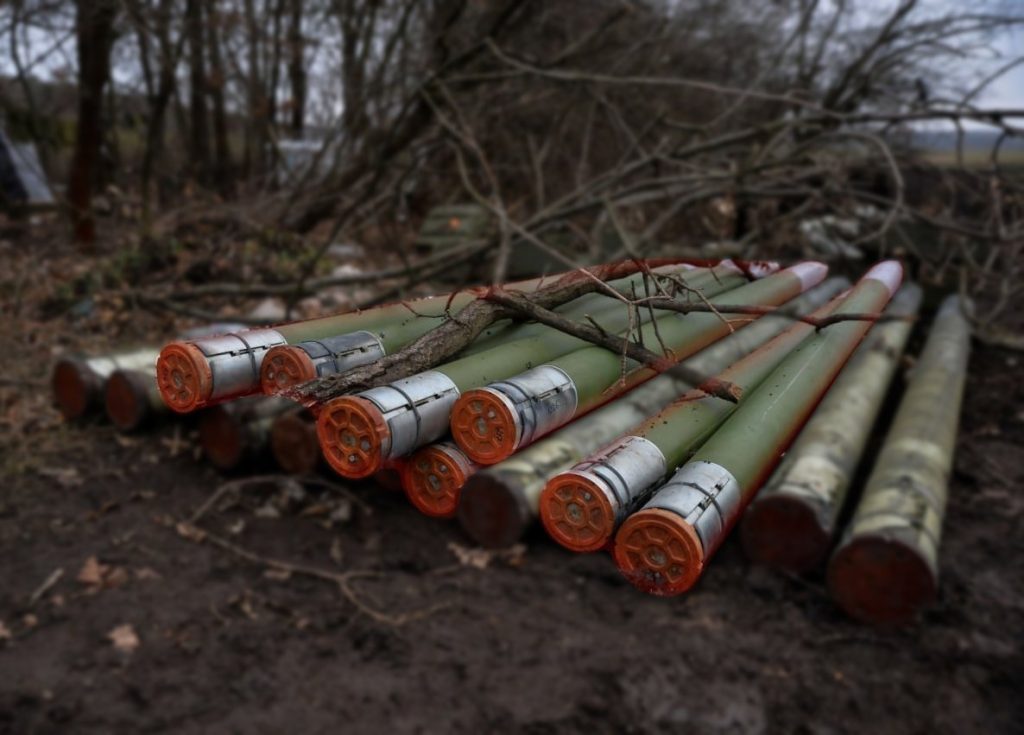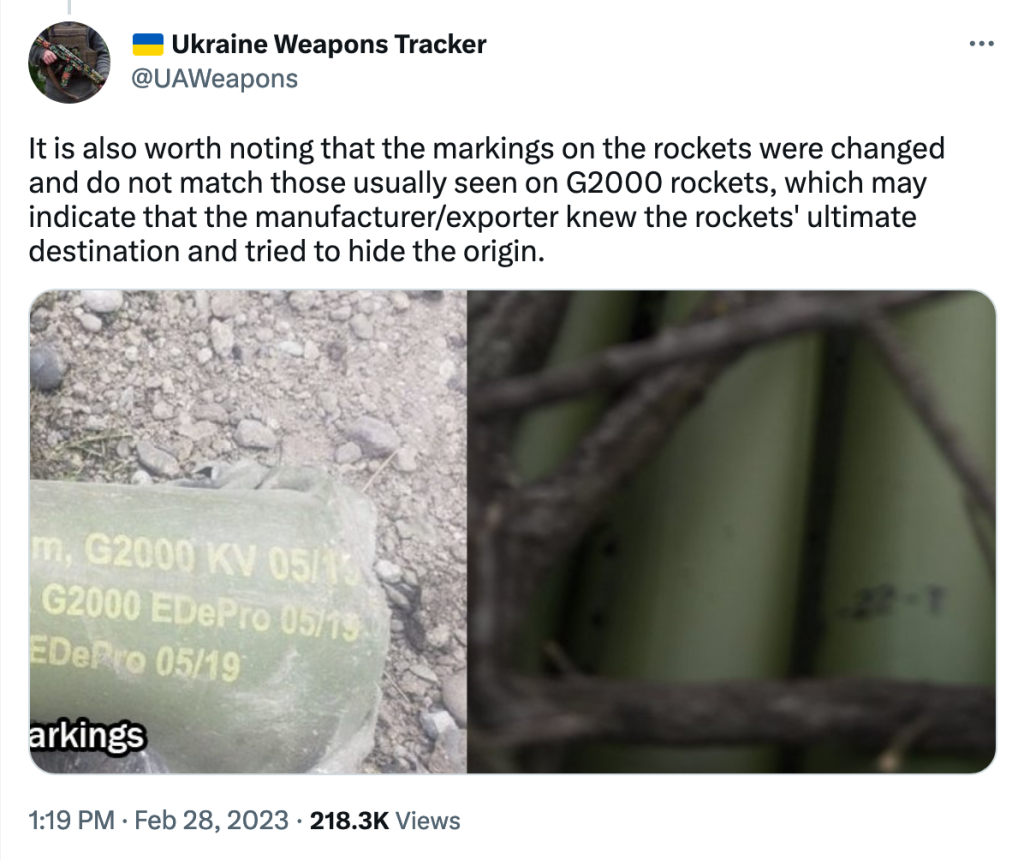
Despite its alleged neutrality, there is evidence that Serbia has provided as many as 3,500 Grad rockets to Ukraine. According to Ukraine Arms Tracker, the rockets being delivered to Ukraine are the ER Grad 2000 version, with a maximum range of 40 kilometers instead of the standard 20 kilometers. If the authorities in Belgrade knew this, it would be a significant violation of the country’s declared policy, one reaffirmed by Serbian President Aleksandar Vučić on multiple occasions.
These new revelations follow a 2019 scandal in which Serbia was caught supplying 60mm mortar shells to Ukraine that ended up being used against the civilian population in the Donbass region. Vučić apologized for that incident, claiming that Krušik had sent them to Poland. But published documents proved that Ukraine was listed as the recipient.
The Mash News Agency published a video of a warehouse in Bratislava where the 3,500, 122mm M-21 rockets for Grad rocket launchers were being housed before their transfer to Ukraine. According to Mash, the rockets were delivered to Slovakia on February 4 and 6. The video also presents documentation showing the Serbian Defense Company Krušik as the manufacturer and that the order was placed by a Canadian company JNJ Export Import for use in Turkey. The exporter of the ammunition was the Serbian company, Sofag. Upon receiving the shipment, the Turkish company Arca transferred the ammunition to the American company Global Ordinance, which then transferred it to Slovakia for use by Ukraine.
Get gains in the gym in style with AFP Merch!
The Serbian Defense Ministry publicly denied any involvement in the matter. “We absolutely do not export weapons to Ukraine or Russia, and we have the right to export (weapons) to other countries that are legitimate end users,” Serbian Defense Minister Miloš Vučević told members of parliament on February 27. “Whether private companies buy (weapons) on third country markets and whether they sell to companies in other countries is not an issue for Serbia. We will not sell to anyone who participates (in military conflict) and we do not want our weapons to be used against any of the parties.” Vučević added.
The deal has aroused a great deal of suspicion because the Serbian company Sofag that exported the ammunition to Turkey is owned by Jelena Petrović, the daughter of shady arms dealer Slobodan Tešić. Tešić was sanctioned by the U.S. Treasury Department in 2017 for bribery and violating arms embargos. The sanctions, however, have not stopped him from selling arms to as many as six American companies, including the Global Military Products – part of the Global Ordnance group, which supplies weapons to the U.S. Department of Defense.
The Global Ordnance Group is owned by Marc Morales, another disreputable arms dealer who was previously indicted by the U.S. Justice Department in 2010 on charges of trying to bribe Gabon’s Minister of Defense to secure a $15 million arms deal. The Gabon deal was, in reality, an FBI sting operation to root out bribery of foreign officials in the arms industry. The case, however, fell apart on technicalities the following year.
In a 2022 interview with the Balkan Investigative Reporting Network (BIRN), Marc Morales, however, disavowed any ties to Tešić, saying, “To my knowledge, nobody from my company has ever met him and Global Ordnance definitely does not do business with him. And to clarify, I have never met him either.”

Do Serbian authorities know to whom they ended up selling the rockets? Alexander Milovanović, a former employee of the security service of the arms production enterprise Jugoimport SDPR, told the Serbian News Agency N1 that it is not plausible that Serbian authorities did not know of the transfer. “Based on the end-user certificate coming directly from a Turkish partner structure of our Ministry, these weapons should have ended up in Turkey, but apparently that did not happen. Then, the company MSM Novaky handed over the missiles to the Global Ordnance Trading Company, owned by Mark Morales, to which the Ukrainian Ministry of Defense issued a certificate of use,” Milovanović told N1.
Interestingly, Ukraine Arms Tracker seems to corroborate Milovanović, posting on Twitter, “It is also worth noting that the markings on the rockets were changed and do not match those usually seen on G2000 rockets, which may indicate that the manufacturer/exporter knew the rockets ultimate destination and tried to hide the origin.” While it is unlikely that definitive evidence will be revealed, it seems plausible that both Serbian and American authorities had direct knowledge of the scheme and signed off on it. Serbian authorities have been trying to appease Washington and Brussels in their efforts to join the European Union, while American authorities have no compunction about using disreputable arms dealers in their efforts to prop up the regime in Kiev.
























